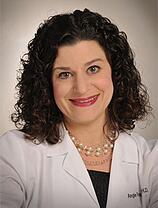Sleep talking, formally known as somniloquy, is a sleep disorder defined as talking during sleep without being aware of it. Sleep talking can involve complicated dialogues or monologues, complete gibberish or mumbling. The good news is that for most people it is a rare and short-lived occurrence. Anyone can experience sleep talking, but the condition is more common in males and children.
Sleep-talkers are not typically aware of their behaviors or speech; therefore their voices and the type of language they use may sound different from their wakeful speech. Sleep talking may be spontaneous or induced by conversation with the sleeper.
Little is known about the content of the sleep talking: some talking makes no sense at all and some of it may relate to past events, experiences, and relationships that no longer have current relevance or emotional impact. Modern sleep science and the law accept that sleep talking is not a product of a conscious or rational mind and is therefore usually inadmissible in court.
Although not physically harmful, sleep talking can cause embarrassment and can annoy a bed partner, roommate, or be disruptive in group-sleeping situations. Because of this, sleep talkers are sometimes afraid to sleep away from home and can cause insomnia in a person sleeping nearby.
Causes of Sleep Talking
Sleep talking may be brought on by stress, depression, sleep deprivation, day-time drowsiness, alcohol, and fever. In many instances sleep talking runs in families, although external factors seem to stimulate the behavior. Sleep talking often occurs concurently with other sleep disorders such as nightmares, confusional arousals, sleep apnea, and REM sleep behavior disorder. In rare cases, adult-onset frequent sleep-talking is associated with a psychiatric disorder or nocturnal seizures. Sleep talking associated with mental or medical illness occurs more commonly in persons over 25 years of age.
Symptoms of Sleep Talking
Sleep talking can occur during any stage of sleep. The lighter the sleep, the more intelligible the speech: in stages 1 and 2, people may have entire conversations while in stages 3 and 4, speech may be restricted to moans and gibberish. Symptoms can vary in severity and duration.
Severity Criteria
- Mild: episodes occur less than weekly,
- Moderate: episodes occur more than once per week but less than nightly and cause mild disturbance to a bed partner
- Severe: episodes occur nightly and may cause pronounced interruption of a bed partner’s sleep.
Duration Criteria
- Acute: 1 month or less.
- Subacute: More than 1 month but less than 1 year.
- Chronic: 1 year or longer.
In addition to speech or utterances during sleep, other symptoms of sleep talking may include:
- Sleep Terrors
- Sleepwalking
- Confusional Arousals
- Obstructive Sleep Apnea Syndrome
- REM Sleep Behavior Disorder
- Psychiatric Disorders
- Nocturnal Seizures
Treating Sleep Talking
In general, no treatment is necessary. However, if sleep talking is severe or persists over a long period of time, talk to your physician or health care provider about the problem. There may be an underlying medical explanation for your sleep talking (e.g. an undiagnosed sleep disorder, or debilitating anxiety or stress).
Certain measures can be taken to reduce the likelihood of a sleep talking episode. Following regular sleep schedule, getting adequate amounts of sleep, and practicing proper sleep hygiene can help reduce the frequency and severity of sleep talking. Also refrain from alcohol, heavy meals, and excessive amounts of stress to reduce sleep talking.
For bed partners and roommates, earplugs or white noise (such as a fan) may help.
Alaska Sleep Clinic is the only sleep clinic in Alaska with a Cognitive Behavioral Therapist specializing in sleep, Dr. Angie Randazzo.













